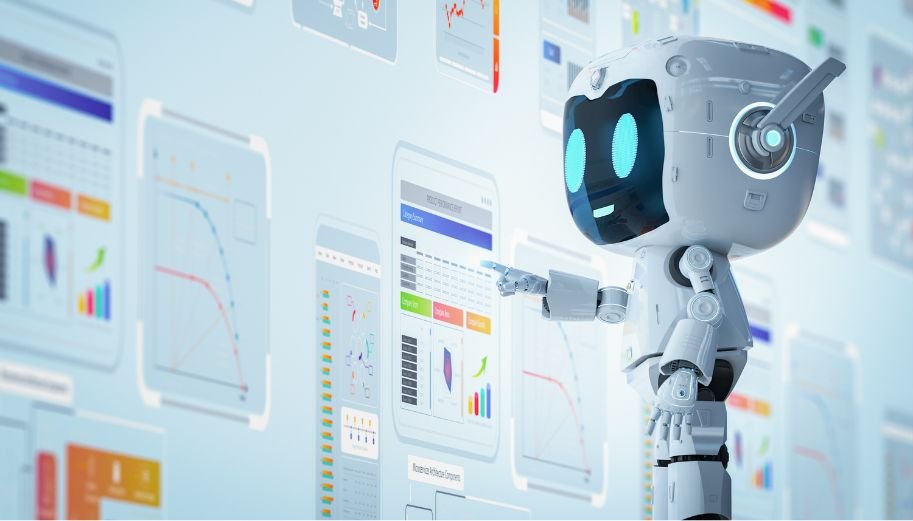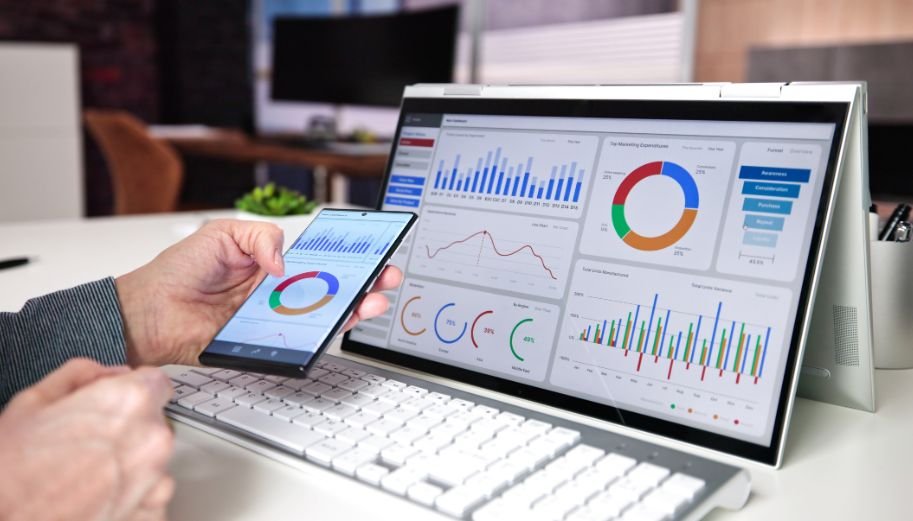Accounting has long relied on detailed, manual record-keeping to ensure financial accuracy and compliance. However, the role of accountants is changing as technology reshapes the field. Innovations like AI, cloud computing, and blockchain are transforming how financial data is managed, enabling real-time reporting, predictive analysis, and greater efficiency. With tools like these, accountants are now poised to shift from traditional number-crunching to strategic advising—a crucial transition for businesses today looking to harness the power of digital transformation Net Circle.
In this article, we will explore how advancements like automation, cloud solutions, blockchain, and new skillsets are revolutionizing the accounting industry.
Automation and AI in Accounting

One of the biggest game-changers in accounting technology has been the rise of automation and artificial intelligence (AI). These tools are transforming how accountants manage daily tasks, analyze data, and make strategic decisions.
Robotic Process Automation (RPA)
Robotic Process Automation (RPA) refers to the use of software robots to automate repetitive tasks. In accounting, RPA can streamline various processes, such as data entry, invoice processing, and reconciliation. By automating these tasks, firms can reduce human error and free up their staff to focus on more strategic work.
Benefits of RPA
- Increased Efficiency: Tasks that once took hours can now be completed in minutes.
- Reduced Errors: Automation minimizes the risk of mistakes caused by manual entry.
- Cost Savings: Organizations can save on labor costs and improve their bottom line.
Artificial Intelligence (AI)
Artificial Intelligence (AI) is another game-changer in the accounting field. AI-powered tools can analyze vast amounts of data quickly and accurately, providing valuable insights.
- AI-Powered Tools: These tools help with financial analysis, budgeting, and forecasting. They can identify patterns and trends that may not be immediately apparent.
- Machine Learning for Fraud Detection: AI can learn from historical data to identify unusual transactions, helping prevent fraud and assess risks effectively.
- Natural Language Processing: This technology allows for efficient data extraction and analysis from unstructured data sources like emails and documents.
Cloud Accounting and Data Analytics

The advent of cloud technology has opened new horizons for accounting, making it easier for accountants and businesses to manage their finances on the go and collaborate in real-time.
Cloud-Based Accounting Software
Cloud-based accounting solutions are rapidly gaining popularity. These platforms offer real-time access, enabling accountants to work from anywhere, collaborate with clients, and ensure data security.
Benefits of Cloud-Based Solutions
- Real-Time Access: Users can access financial data anytime, anywhere.
- Remote Collaboration: Teams can work together seamlessly, regardless of location.
- Improved Security: Cloud providers often offer robust security features to protect sensitive data.
Some popular cloud accounting software includes QuickBooks Online, Xero, and Zoho Books. Each offers unique features that cater to different business needs.
Popular Cloud-Based Accounting Softwares
| Software | Key Features |
|---|---|
| QuickBooks Online | Easy-to-use interface Real-time access to financial data Invoicing and expense tracking Bank reconciliation Payroll management Inventory management Integrates with other business apps |
| Xero | Powerful accounting features Robust reporting capabilities Bank feeds and automatic bank reconciliations Inventory management Project tracking Multi-currency support Integrates with a wide range of apps |
| Zoho Books | Customizable dashboards Expense management Invoice and estimate creation Time tracking Inventory management Project management Integrates with other Zoho apps |
| FreshBooks | Simple invoicing and expense tracking Time tracking Payment processing Project management Integrates with other business tools |
| Sage Intacct | Advanced accounting features Robust reporting and analytics Financial consolidation Project accounting Inventory management Scalable for businesses of all sizes |
Data Analytics and Business Intelligence
Incorporating data analytics into accounting practices can enhance financial performance. By leveraging data, accountants can gain deeper insights into trends and make more informed decisions.
- Predictive Analytics: This approach uses historical data to forecast future trends, helping businesses plan accordingly.
- Data Visualization Tools: Effective communication of financial information is vital. Visualization tools can present complex data in a clear and understandable way.
As businesses evolve, they need to adapt to new methods. Innovative tools play a crucial role in this transformation, especially when it comes to enhancing communication processes. For further insights on how technology is affecting business communication and to learn effective strategies for successful meetings, check out this resource here.
Blockchain and Cryptocurrency in Accounting

Blockchain and cryptocurrencies are reshaping various industries, and accounting is no exception. While still emerging, these technologies have the potential to fundamentally alter how financial records are kept and transactions are verified.
Blockchain Technology
Blockchain is a decentralized digital ledger that enhances transparency and security in financial transactions. Understanding blockchain is crucial for modern accountants.
- Smart Contracts: These are self-executing contracts with the terms of the agreement directly written into code. They can automate and secure transactions.
- Cryptocurrencies: As digital currencies gain traction, accountants must understand their implications for financial reporting.
Cryptocurrency Accounting Standards
The rise of cryptocurrencies presents challenges and opportunities for accountants. Emerging standards and regulations are being developed to address these issues, ensuring proper accounting for digital assets.
The Future of Accounting

As technology continues to evolve, the future of accounting holds even more potential for transformative change. The next few years will likely see more sophisticated AI tools, greater adoption of cloud services, and even more blockchain-based solutions.
The Rise of AI-Driven Advisory Roles
With advanced data analysis, accountants are increasingly becoming strategic advisors who help clients understand the story behind the numbers. Rather than simply reporting past financial performance, they can forecast future trends, identify growth opportunities, and guide decision-making processes. AI tools make this shift possible by providing accountants with actionable insights that they can share with their clients.
Sustainable Accounting Practices
Digital transformation in accounting also promotes sustainability. By using digital tools and cloud-based platforms, accountants can significantly reduce paper usage, support remote work, and reduce the environmental impact associated with physical offices. This aligns with a growing trend towards more environmentally conscious business practices.
Adaptation Challenges
Despite the many advantages of new technologies, transitioning to digital accounting systems does come with challenges. Accountants must constantly update their skills to stay current, while companies need to invest in both technology and training to ensure smooth transitions. Fortunately, most accounting software companies offer comprehensive training and support to help ease the learning curve.
The transformative power of technology in accounting is undeniable, paving the way for a more efficient, accurate, and innovative future. For additional insights on the future changes in accounting, check out this article on how technology will change accounting.
Frequently Asked Questions (FAQs)
Technology plays a crucial role in modern accounting by automating repetitive tasks, improving accuracy, and enabling real-time data analysis. Tools like cloud accounting software, artificial intelligence, and data analytics help accountants make informed decisions faster and more efficiently.
RPA benefits accountants by automating routine tasks such as data entry and invoice processing. This leads to increased efficiency, reduced errors, and cost savings, allowing accountants to focus on more strategic and analytical tasks.
Popular cloud accounting software options include QuickBooks Online, Xero, and Zoho Books. These platforms offer features such as real-time access, remote collaboration, and improved security for financial data.
Artificial intelligence improves financial forecasting by analyzing vast amounts of data to identify patterns and trends. AI-powered tools can provide insights that help businesses make accurate predictions and informed financial decisions.
Blockchain enhances accounting practices by providing a transparent and secure way to record transactions. It enables features like smart contracts and can simplify the accounting process for cryptocurrencies, ensuring accurate financial reporting.






Leave a Reply